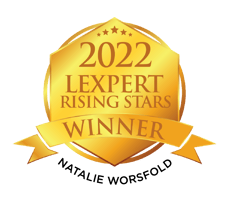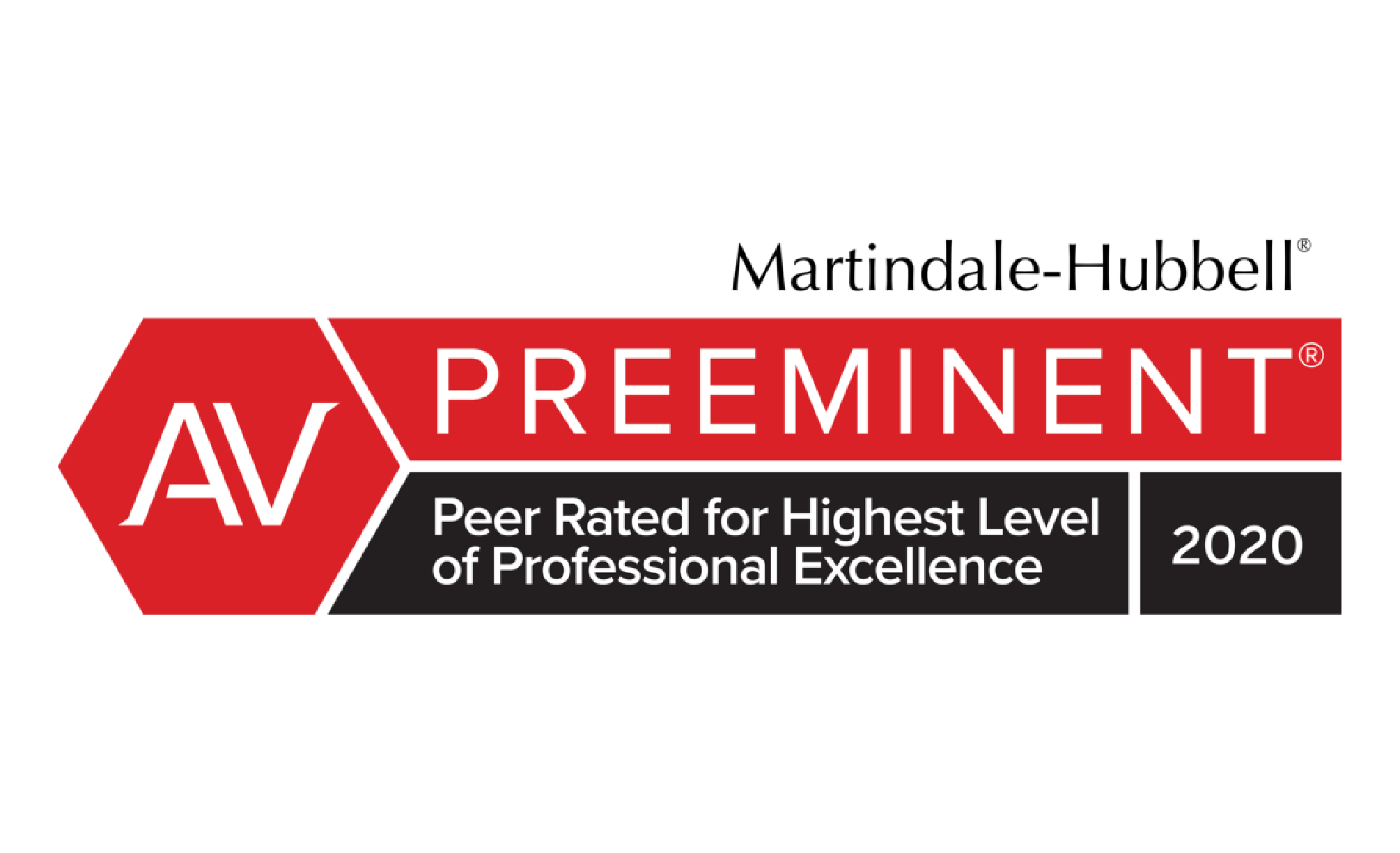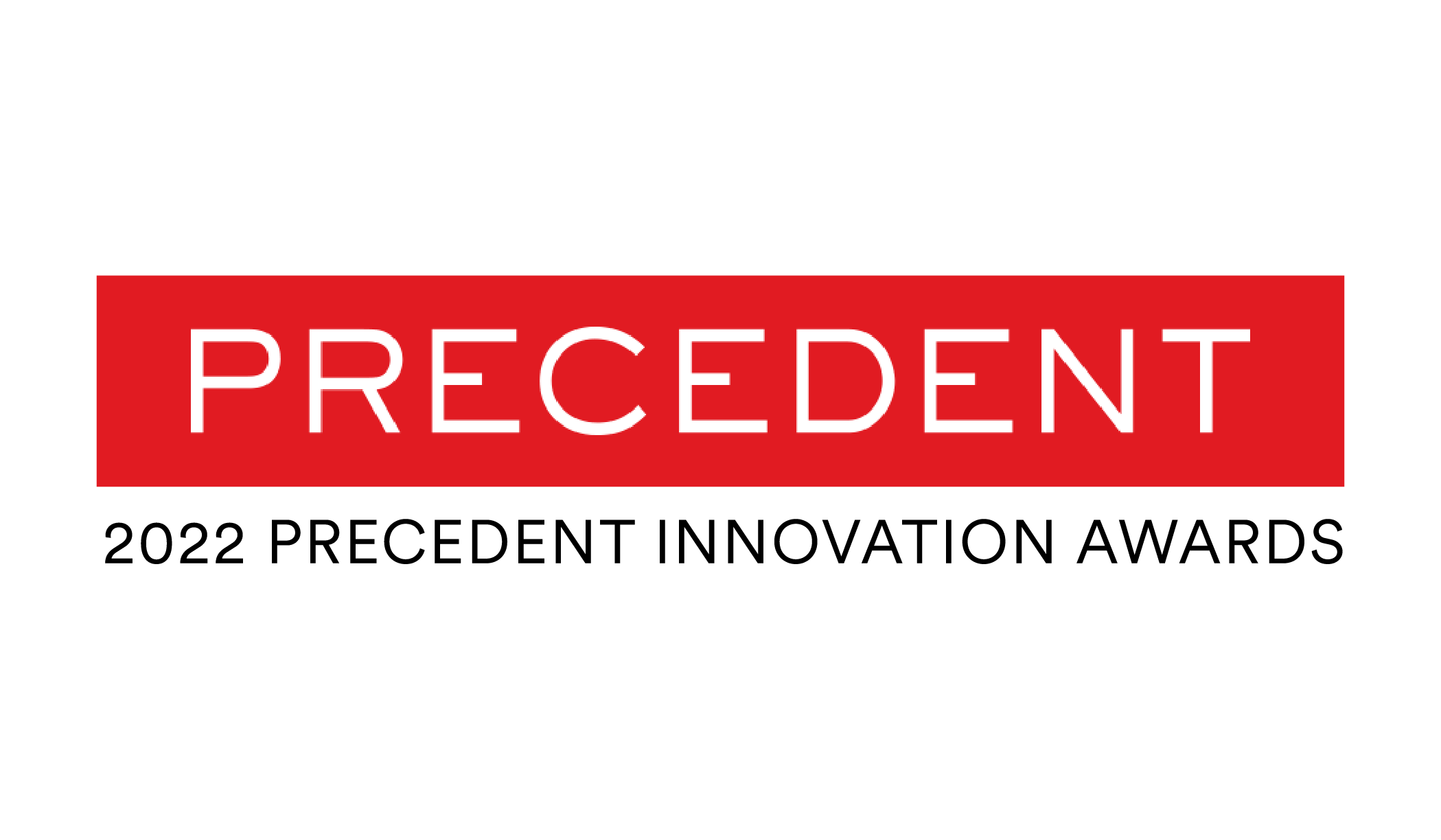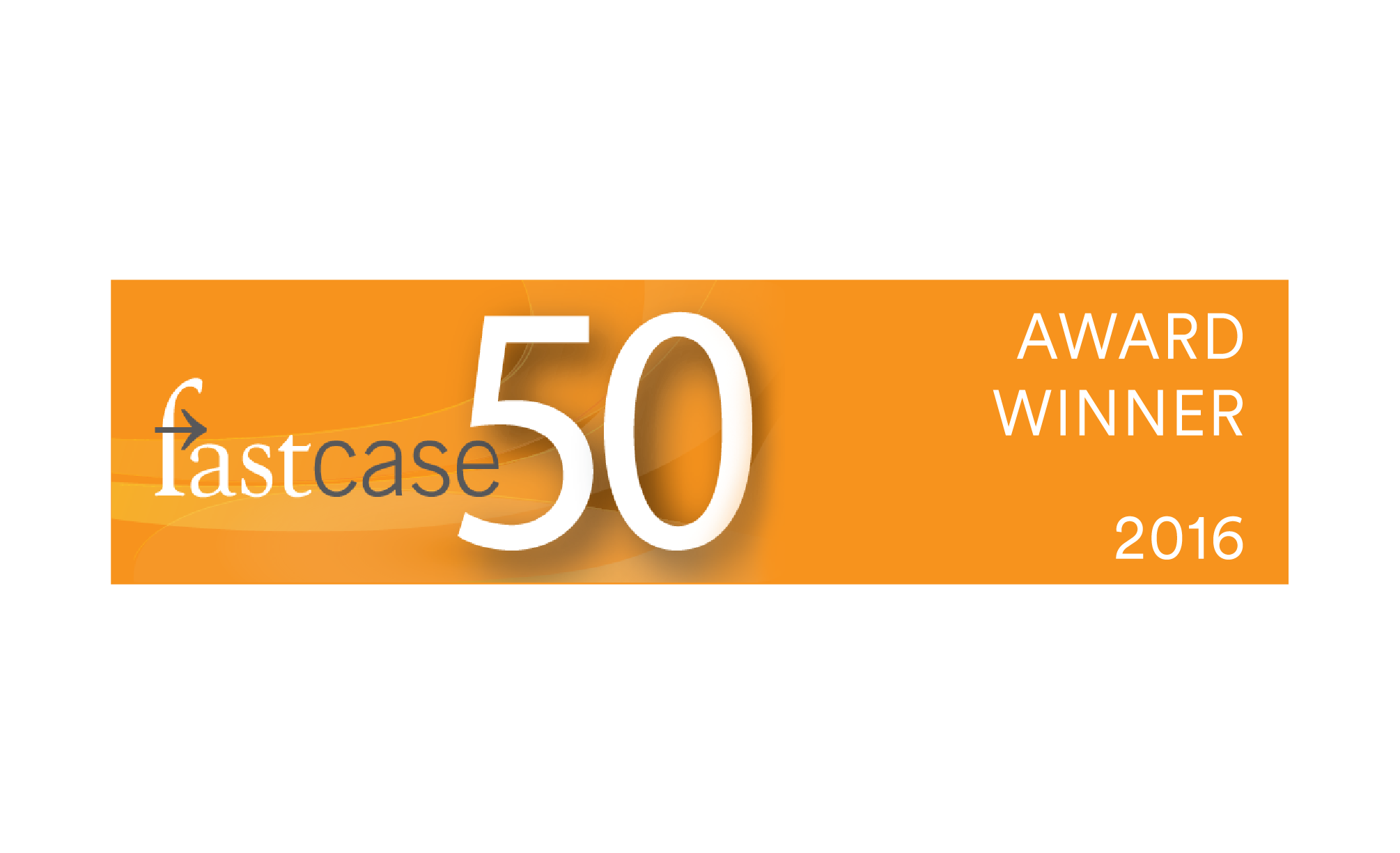
Peter Aprile and Natalie Worsfold interview Fred Headon. Fred is the past President of the Canadian Bar Association and the Chair of the CBA’s Legal Futures Initiative (“Legal Futures”). Legal Futures focuses on examining the nature, extent and consequences of the changing legal landscape and the future of legal services in Canada. The group discuss Legal Futures’ role, research, and recommendations. Fred also provides a unique perspective, as in-house counsel at Air Canada, on the role of the client in driving change in the legal industry.

Fred Headon is the chair of the CBA Legal Futures Initiative. He is also Assistant General Counsel, Labour and Employment Law, at Air Canada and the past president of the CBA. Prior to joining Air Canada, Fred worked in private practice in Montreal in labour, employment, human rights, privacy, and administrative law, as well as civil litigation. He also taught Social Law and Administrative Law at the Law Faculty of the National University of Rwanda. Outside of his legal work, Fred spends time with his two children and enjoys cross-country skiing and swimming.
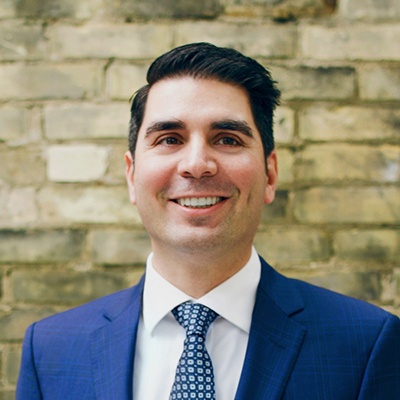
Peter Aprile is a senior lawyer specializing in tax dispute resolution and litigation. His vision as Counter’s founder and his everyday role at the firm are one and the same: to be an agent of change, uncovering opportunities and developing strategies that achieve more than anyone expected. A creative thinker, Peter studies problems from all different angles to find what others have missed. He’s also convinced that he likes winning more than most people.
Different people describe Peter in different ways. At the CRA and the federal Department of Justice, the word relentless comes up quite a lot. Admittedly, so does the word a**hole – but it’s often said with a certain grudging respect, if not affection. Peter’s clients call him a saint. Well, some of them, anyway. His colleagues describe him as empowering and harddriving, but fair. Peter’s friends call him loyal. His wife describes him as a lot to deal with, but worth it. Peter encourages his young daughter and son to call him “The Big Homie,” though with limited success. His mother describes him with the single word mischievous – before going on to complain that he should call more.

Natalie is a tax lawyer who represents individual taxpayers and owner-managed businesses in disputes with the Canada Revenue Agency (CRA). She also successfully challenges CRA decisions denying taxpayer relief and helps facilitate applications under the Voluntary Disclosures Program.
But what you really need to know about Natalie is that she’s a tax litigator with heart. When she takes a case, it’s not out of technical interest – it’s because she cares. And if she believes the government has got something wrong, she won’t stop until it’s been put right. She’s fierce.
Natalie is the co-architect behind many of Counter’s process workflows, software and data analytics systems, as well as our comprehensive knowledgebase (loving named Hank). And when it comes to preparing cases, she’s Counter’s secret weapon – happiest when elbow-deep in evidence, meticulously building creative solutions to seemingly impossible problems. Because the fact is Natalie sees things that other people don’t.
Natalie’s family and friends describe her as loyal, selfless, understanding and fun. They also mention stubborn. To her Counter colleagues she’s a combination of stellar brainpower and contagious enthusiasm who elevates the game of everyone around her.
Practices
Tech, Tools & More
[music]
Peter Aprile: [00:06] Hi, and welcome to Building NewLaw. Canada's first, and only, CPD accredited podcast. It’s hosted by me, Peter Aprile, and my colleague, Natalie Worsfold.
[00:14] In each episode, we interview lawyers, legal technologists, and other like-minded people at the forefront of NewLaw. We hope that the podcast connects the NewLaw community and helps us all learn more about the approaches that are changing the way that we practice law.
[00:26] To learn how you can use this episodes, and previous episodes, to satisfy your law society's CPD requirements, visit our website at countertax.ca/bnl. That's countertax.ca/bnl.
Enjoy the show.
[music]
Sponsor: [00:27] The Building NewLaw podcast is supported by Counter Tax Lawyers, a new type of tax controversy and litigation law firm. To learn more about Counter, go to countertax.ca.
[music]
Natalie Worsfold: [00:42] One more quick thing before we get to the episode, we are really interested in hearing about what and how you are building NewLaw.
Peter: [00:55] So if you’re building a NewLaw firm, legal tech company, or a product, we want you to record a text message and tell us all about it, and we’ll add it to the end of one of our podcast episodes.
Natalie: [01:03] Just go to countertax.ca/imbnl, click on the send a voicemail message to Building NewLaw button, and give us a quick summary of what you’re building and why.
Peter: [01:13] We’d love to hear about your experience so that we can share it with the whole NewLaw community.
Natalie: [01:16] And now back to the show.
[music]
Natalie Worsfold: [01:43] Today we’re speaking with Fred Headon. Fred is the chair of the Canadian Bar Association’s Legal Futures Initiative.
Peter: [01:54] And he’s also General Counsel for Air Canada. In 2013, the CBA began the Legal Futures Initiative, which is dedicated to examining the nature, extent, and consequences of the changing legal landscape.
[02:06] The Legal Futures Initiative is dedicated to developing original research and creating a framework for the ideas that are changing the practice of law.
Natalie: [02:13] Our conversation with Fred will focus on the CBA’s role in the changing Canadian legal landscape, what the purpose of Legal Futures is, what it’s done so far, and what it’s going to do next.
Peter: [02:23] We are really excited to gain Fred’s General Counsel perspective, as well as his perspective as the CBA Legal Initiatives Chair. So, here’s our interview with Fred.
[music]
Natalie: [02:35] So, Fred, thank you so much for speaking with us today. Obviously there’s lots of change going on in the legal profession and in legal services. Can you tell us a little bit about the Canadian Bar Association’s role in that changing environment?
Fred Headon: [02:49] Thanks for having me. I’m delighted to be able to chat with you about the work we’ve been doing. The Bar Association, which I think is probably known to many of your listeners, but principally for things we’ve done, for example, on Parliament Hill or before the courts.
[03:02] We’ve been long in the business of providing professional development training. But in recent years, we’ve also started to look quite intently at where is the practice of law going, what’s driving change in terms of the expectations of our clients, and thinking about how we can help our members get out ahead of that change.
Natalie: [03:21] So, for anyone who isn’t familiar with the Legal Futures Initiative, can you tell us a little bit about its purpose?
Fred: [03:28] So, it started out as an effort to try to understand what was taking place in the market for legal services. What were the drivers of the changing client expectations that we saw emerging? Of course, many folks point to the financial crisis in 2008, 2009 as being a bit of a turning point in the market for legal services.
[03:47] But we wanted to look beyond that to say, what’s happening in people’s lives more generally? Things that may have been taking root even before 2008. To see, what is it they expect from their lawyers? Because we noticed that many people are sidestepping the legal system altogether.
[04:04] So, we set off and looked at the state of the market from the supply side, with folks like Bruce McEwen. We had Richard Susskind update some of his work for us. We looked at the state of the profession in Canada as best we could in terms of demographics and where people are practicing and such.
[04:22] And all of this research is available on the CBA website. I really encourage your listeners, if they’re not going to make their way through all of that, there’s another report there that really became a foundation stone for us, and that was a report that looked at the expectations of our clients.
[04:36] It’s a public opinion research firm we engaged who explored the point of view of people who have had very little to no experience with the legal system right through to folks like myself who work in a large corporation and frequently deal with lawyers and the legal system. The findings of that report really grounded our reflections.
Peter: [04:55] And is that the “Transforming the Delivery of Legal Services in Canada” report?
Fred: [04:59] That’s the final report. It contains our 22 recommendations, and with some introduction to help situate some of this for people. And that’s where we saw the opportunity to help lawyers understand, where do these expectations from clients come from, so they can situate how we got to our recommendations and think about, what does it mean for their practice?
Peter: [05:18] And so, the CBA Legal Futures Initiative; is the help and support that it’s providing lawyers, is that primarily through the research and publication of material, or are there additional things to that?
Fred: [05:29] So, it’s a bit of a multifaceted response. Certainly the material’s valuable, because it’s where we spend the time thinking through the trends we identified, thinking through some of the opportunities we saw for the legal profession. Where we moved after that part of the process, though, was to say, “How do we now make this real?”
[05:49] And that’s where we’ve produced some guides that aren’t so much the analysis of what’s going on, but help equip our members to think about, for example, how would you develop a strategy for your firm in light of what we’ve learned from the report?
[06:04] We’ve put out another guide for younger lawyers and law students that says, “All right, thinking about some of the trends and conclusions that are set out in this report, how would you envisage your career?” And we give them some examples of some young entrepreneurs who found ways to practice law differently.
[06:21] The other thing that we thought would be particularly helpful for firms, was to put in front of them some of the examples of what is being done differently today.
[06:30] And that led to a very exciting initiative this past summer at our Canadian legal conference, where we held an event called the Pitch, where five entrepreneurs were able to get up in front of the crowd and make their pitch about their particular innovation in the field of law with the opportunity to get to spend some time in the Legal X incubator and in front of a venture capitalist.
[06:53] So, these are some of the things that we’ve rolled out lately and some of the things that I think you’ll see more of in the coming months as we try to help people think about what they could do with this in their practice.
Peter: [07:04] Yeah, and what strikes me about the CBA Legal Futures Initiatives, and all these reports and guides, and presentations -- and I don’t know if this is different than what the CBA has done in the past, or if I’m just noticing it and digging deeper in it than I have at a previous time in my career -- but kudos to all of you because the level of quality is really high.
[07:26] It is something that members of the CBA should be proud of and something that I do think is delivering real value to its members.
Fred: [07:35] That’s certainly what we set out to do. That’s very kind of you. That launch event at Legal X where we had a chance to chat about some of this was a prime example of the folks who’ve been willing to step in and join us with this. And I think that’s been great for the CBA and I think it’s great for the profession that we’ve been able to find something new and different that’s valuable.
[07:54] I hope others will continue to contribute to the dialogue that, we hope, will follow.
Peter: [07:58] Yeah, it is exciting, because candidly a lot of resources that I’ve taken advantage of in the past have come from the ABA, frankly, and I always looked to the CBA and thought, “We can do better.” And I see this as part of that, and as I said, it makes me pretty proud to be a member of the Bar and to know that the CBA is producing this quality of work.
Natalie: [08:18] Just from the events that we’ve attended here, certainly it’s fostering a great sense of community in terms of people who are looking to make a change and people who are looking at legal services in a slightly different light, so that’s been a wonderful effect.
Fred: [08:31] It’s brought in a nice group of people that way. It’s been really wonderful to engage in that conversation, as you mentioned. It’s one I do hope we’ll be able to foster. And the kinds of trends that we discussed in the report are quite widespread. Nobody has found the magic wand solution to these things yet, and there’s I think a lot we can learn from each other.
Peter: [08:49] Do you want to highlight maybe a couple of those trends?
Fred: [08:52] Sure. The ones that always stand out for me are the ones where clients expect us to do things like everybody else in their lives. And lawyers love to sort of respond to this, “Well hang on, we’re different.”
[09:05] But while what we do is very important, there’s very little that’s sacred about how we do it. And that’s where I think the profession can do more to embrace technology, not only because it’s also going to make our lives easier, but because our clients see everybody else doing it.
[09:20] And when you drive a wedge between us and them, they start to scratch their heads and wonder what value you’re really delivering. And if that question is arising just because of how we’re doing things, I think that’s just a real missed opportunity for us. It’s something we control.
Peter: [09:34] I think to myself when I hear you talk about this, I think, “Are these ideas new, or just new to lawyers?” And I guess that doesn’t matter. Here we are.
[09:41] And in terms of CBA encouraging lawyers to embrace technology and understand how the rest of the world does business, or other industries do business I should say, is the CBA pushing or lobbying for any sort of change in terms of lawyer training or technological requirements or things of that nature, or is it stopping short of that?
Fred: [10:02] Absolutely. We’re calling for much greater role for technology in the delivery of legal services. You see that in a couple places in our report.
[10:09] Certainly, we think that in the training of lawyers we need to put a greater emphasis on the use of technology. I hasten to add on that point though, not because we want the lawyers to become programmers themselves, for example.
[10:23] Something that I think has perhaps held us back as a profession is this tendency to say, “I went and did an hour-long course on something and now I’m an expert in it.” It’s not to replace these people, but to understand more profoundly what they can do for us and what they can bring to the table.
[10:40] So, don’t do a day-long course even on project management and think you’re going to do it all yourself. Come at it with a mindset of, “Now I can better ask the right question. Now I can better understand what these professionals who are trained in it can bring to the equation.”
[10:54] I remember my tax law prof in law school said, “I know you’re not all going to be tax lawyers. I want you to know when to call the tax lawyer.” And I think we need to take that approach when it comes to technology. We need to spend the time to understand it better with a view to working better with others.
Natalie: [11:10] And what’s Legal Futures focusing on next?
Fred: [11:13] We do have a recommendation about a center of expertise on the profession. We hope to publish in the next few months at least one more guide for our members in terms of how to bring some of the recommendations to life.
[11:26] We’ve had some great uptake with the young lawyer’s forum at the CBA. We’re going to be able to put together a couple of more projects with them in the coming months as well. And hopefully, we will soon be turning our minds to putting together another edition of the Pitch.
Peter: [11:43] Fred, in your role in this transition from CBA President initially, and now the Legal Futures Initiative, what were the most surprising things to you in that transition? What have you learned?
Fred: [11:54] I may go back to a comment I made a little earlier about...What we do is very important. I knew that. I certainly believe that you don’t become Bar Association president if you don’t think that the legal profession has something important to offer.
[12:08] But it was the other half of the comment. The extent to which there is so little that sacred about how we do our job may have been the biggest learning for me. I came to this very excited about the possibility of, perhaps, addressing some of the things that I found frustrating about the traditional ways of practice.
[12:21] I had been hopeful that we might be able to reinforce the relevance of the legal profession, thereby help illustrate the value that we bring to things. But the full extent of what we could really do was probably the eye opener for me.
[12:36] There I give the credit to the volunteers and staff who worked on this project because it was that diversity of views that really led to prying things open just as far as we did.
Peter: [12:47] Now, you’re also uniquely positioned, and you’re gaining a perspective that most don’t have in your interacting with law firms in your day-to-day in terms of your GC role as well as in the CBA role. I would suspect there’s very few people that see or talk to more lawyers than you do at this point.
[13:01] [laughter]
Peter: [13:02] Are you seeing change happen across the different practice areas and sizes of professions? Do you see people grabbing it and actually implementing, or are we still just letting it seep in?
Fred: [13:14] I think there has been an acceleration in terms of the pace of change. That’s in part because of this greater realization that something does have to change.
[13:25] Certainly in my day job with the folks that we deal with, I have seen a changing attitude towards things like billing on the hour, an openness to creating online platforms for us to interact, that’s been very encouraging.
[13:40] I think we’re going to see a further expansion of the number of partners that they’re working with. And that’s something that is true as much sitting here in my chair with Air Canada as it is with my role with the Bar Association.
[13:56] The larger firms may have had some more resources to throw at this, but I’m certainly seeing a number of folks in smaller shops who, I would say, are just as innovative.
[14:07] It’s rather uneven distribution of where the innovation lies out there right now, but we certainly have seen it across the board from some folks I know who are basically on their own, through to some of the largest firms who have been willing to experiment and engage in this, which has been very encouraging.
[14:25] We’ve seen a number of firms continue to support other entrepreneurs. I saw something coming through on Twitter that Kira has partnered with Freshfields. So, a Canadian startup, they’re partnering with a UK firm.
[14:38] I think you’re going to see more of those kinds of startups emerging as partners with firms big and small, and we need to keep our eye on the likes of the accounting profession as another source of partnership. We’ve seen them move into certain fields of law already, but we’ve also seen them move into things like document review. For example, Deloitte purchasing the ATD head of Toronto.
[15:02] I think we’re going to see more of those kinds of “powered by” arrangements coming to market in partnership with other providers, and that ought to make them available to firms both big and small.
Peter: [15:12] It’s interesting to see how that relationship between law firms and accounting firms are going to develop. Candidly, I’m a little skeptical of whether it’s going to be a cooperative relationship.
[15:21] But it is going to be really interesting to see how that emerges, and I assume that CBA will have an active role in helping that relationship and developing that relationship between the two professions.
[15:32] Going back to your earlier point, the idea of “the future is here it’s just not evenly distributed,” what you’re seeing from your view is bigger organizations with greater resources naturally implementing more extensively or quicker than other size law firms. And that’s what I would expect and what I see, but that’s what you’re seeing as well, correct?
Fred: [15:50] Yup. So, we certainly have seen some of the larger firms who have been able to bring in new programs, launch their own, partner with others. Certainly, that has something to do with the resources available.
[16:03] It has been interesting to folks who have been willing to take a stab out of their own, but I think that may be something that will continue as this unfolds. And some of this is not necessarily going to require huge investments.
[16:16] We’ve heard of people putting up video to explain certain areas of the law to their clients. We’re also going to see in the same vein and here, too, there’s some real hope for the smaller firms as well.
[16:28] The multi-disciplinary practice; certainly in our research we heard a thirst for that among the clientele and I think there’s an opportunity to package things together, which on the one hand maybe easier for big law, what to do with somebody like one of the big four.
[16:42] But also presents an opportunity for some of the smaller shops to carve in a niche and do something on their own, and the MDP recommendation was certainly one of the other ones that emerged very well supported with the client research that we did in the Futures work.
Peter: [16:54] You make a good point, and I agree with you, in that there is more than enough room for small and mid-sized law firms to be doing things to change their practice and to deliver legal services better that aren’t resource-intensive.
[17:08] There is so much for small and mid-sized law firms to do, and I hope that we see more of this as the time moves on, and I hope we see it quite quickly.
[17:17] Do you see the clients causing the law firms to change? Do you see the pressure coming from that side and that leading to the evolution of law, or are you expecting, or thinking, or seeing, that laws firms are going to take that on their own?
Fred: [17:30] A bit of both, and there’s an opportunity for helpful dialogue here as well. And it’s one of the things that I appreciated about the CBA, is that the Canadian Corporate Counsel Association is part of the CBA.
[17:43] We’re all part and parcel, and that gives us a forum to have a conversation about these things, because it certainly, for me, was an eye-opener to move over to the client side and to see it from that perspective.
[17:54] And that understanding of what clients are looking for, that appreciation for what our colleagues in private practice face by way of challenges, as well, is something that can serve us a bit of a bridge.
[18:05] This conversation between those of us who have made the shift with those who are in private practice, we can help foster a greater understanding of what the expectations are and together move this in a way that is going to be more constructive.
[18:19] The other side here is that, increasingly, the purchasers of legal services will be drawn to those who are doing things in a way that appeals to the client. So, if that’s somebody like myself in a large corporation, it is going to be those who can start to offer me some sort of a fixed price, give me an online interface where I can track that work and see where things are at.
[18:43] But we also see, for the market for legal services for individuals, there is a thirst there to do things differently as well. So, we see in the States, for example, the likes of LegalZoom and Avvo, raising all sorts of money in the end because they found a viable business model in serving individual needs online.
[19:02] So, in that sense, whether it’s the spend coming out of a large corporation or an individual, you will see them drawn to those who are delivering the service in a way that is more appealing.
[19:14] I sometimes hear people though, say, especially when you’re dealing with the larger corporate clients, “Why won’t those in-house departments drive this? You’re in the driver’s seat for this kind of change, and you’re in the position to almost impose this on the private firms.”
[19:28] And I approach that with a bit of caution, because I’m not sure that you’re going to find the in-house bar able to articulate precisely the solution. We don’t have necessarily the insight into how the firms are being run. What is the cost structure? Where are those competitive strengths? What are the infrastructure constraints that they may face and such?
[19:48] So, that takes me back to the point about the bridge, and if we can have more of a conversation around what is it that the in-house bar could use by way of help? Where are the pain points for us? In a bit of a collaborative way, we might be able to work with the firms to develop new opportunities.
Peter: [20:05] Right. I take your point, but then I also think to myself, if I was a GC, I’m not really concerned about the internal workings of the firm, but I do want to insist on data-driven results and metrics.
[20:19] And again, I am outside this world that you’re in, and so this may even be naive, but I think to myself, I may go to a service provider and say, “I want to see data in terms of success rates or completion rates, or project management metrics, things of that nature, that may shift the behavior.”
[20:37] And however that law firm does it, whatever changes they need to make inside, so be it. But as the client, I just want the data.
Fred: [20:43] One of those things moving in-house, you realize that that really is how everybody else works. This isn’t just about the C-suite. I’ll just take my workplace; 30,000 employees here. They all have to work to a budget. They have to be able to articulate their process.
[20:56] They have to show at the end of the day where they stand on the metrics that are important to the organization, and so when they walk in to do their will, or deal with whatever problem they may be having in their life that has a legal element to it, they expect that we’re able to articulate those things in the same way.
[21:12] And when I can’t articulate to them, when they come into my office here, in those kind of terms, we again create that distance with the client. So, certainly, the data is part of it. We want to be able to give some indications in a predictive kind of way of how long things are going to be, how many things have hit target, how many things may be tracking behind target.
[21:33] Those are all very helpful indicators, and we’re getting there. I think firms are getting better equipped to provide that, but where we see a lot of pressure right now is on the alternative fee arrangements, and certainly it’s the floor to get into a conversation with many organizations such as ours now, is to have at least the openness to it, and preferably be able to very quickly show us how we might be able to move things off of billable hours.
[21:59] Once you move off of billable hour, efficiency now becomes an even greater imperative, and I think that’s where the in-house bar can say, “Yeah, we need some predictability around these prices because we have to meet budget, and we have to be able to give the business a sense of what they’re getting into.”
[22:14] Once we’ve agreed on that budget figure, though, and as much as I’m happy to have conversations with our firms about how they might do things differently, they’re the ones who know, where can they get the work done cheaper? Where can they make better use of technology? How can they deliver this in a way that’s going to maximize the profit by lowering the cost of the delivery of the service?
[22:32] So, certainly we can nudge them in the right direction, but it’s going to take, I think for the firms, embracing some of those business practices we spoke about earlier to really master this, and meet those expectations on both sides.
Peter: [22:44] I think, to be fair, these are massive changes.
Fred: [22:46] Massive, yes.
Peter: [22:48] What we’re talking about is, we’re talking about transforming small, medium and big law firms, and that isn’t going to happen overnight, but it is nice to hear increased expectation on law firms to start to behave in this way.
[23:01] I think that there’s an accountability, now and coming, that I think may not have been there before. I think that the shift towards that will be better for our clients, and eventually the lawyers will appreciate, and the law firms will appreciate it’s the best thing for them, too.
[23:17] I certainly take your point in terms of what you were saying earlier, that those partnerships with some outside disciplines and providers with law firms is probably the key, “powered by.”
[23:27] And on that point, we’re very grateful for the CBA, because the CBA is kind of powering all of us law firms right now with the information that it’s providing. So, thank you for all your good work, and thank you for your willingness to participate in the podcast.
Fred: [23:41] Thanks for having me. A lot of fun chatting with both of you about this material, and hopefully we’ll have an opportunity to do more of the same.
[music]
Natalie: [23:47] It’s wonderful to hear a prominent organization like the CBA giving such solid, grounded, and practical advice to people to try and push law forwards.
Peter: [24:01] What solid grounded and impractical advice? Do Law Differently is a great resource, OK? And it’s really interesting because it identifies Canadian legal professionals and technologists that wouldn’t otherwise be on such a national stage.
Natalie: [24:16] And the Pitch. When you’re talking about not knowing anything about technology, the people who were at that CBA conference now know about Beagle, and about all of the competitors. I think that’s wonderful. That’s a great way to connect people who perhaps otherwise would not be exposed to this, to seeing what’s being produced in this world.
Peter: [24:35] Yeah, I guess that’s it. This is an exposure and information campaign, and in that regard, what the CBA’s doing now is different than what I’ve ever seen the CBA do before. And not only that, it’s doing it better than it ever has done before. And so, if that is the goal, then they’re doing a great job at that.
Natalie: [24:54] When you say it’s the target, like drip feeding information until people are comfortable hearing about these concepts? Is that what you’re talking about?
Peter: [25:01] Yeah, it’s spreading information to help lawyers get used to the idea that eventually they’re going to maybe need to do this at some point.
Natalie: [25:11] Fred must have the patience of a saint. I don’t know how you can have looked at law firms in these roles, and seen all these inefficiencies as general counsel, as being part of a firm, and then slowly filter this information out. That level of frustration would drive me nuts.
Peter: [25:28] He also said that -- I think his expectations are modest -- that an outsider, i.e. even a client as powerful as Air Canada, can move its service provider.
Natalie: [25:39] True.
Peter: [25:40] It’s a fair point, right? Like with all the talk about how powerful a client is; he’s arguably one of the most powerful clients, right?
Natalie: [25:48] And he’s in the best place to comment on that.
Peter: [25:50] Yeah, and here’s the most powerful client, with a really sophisticated general counsel who knows how to communicate. And you figure, if anybody had the opportunity to make inroads to “modify” behavior, Fred was really well-positioned to do that.
[26:07] But even somebody in that role has expectations set, arguably appropriately. Like, what are you really going to do? Are you going to go into big law? Are you going to go to Dentons, McCarthys, and Stikeman, and you’re going to say, “This is what I expect. You need to start behaving in this way now.”
[26:23] Dentons shrugs and says, “We hear what you’re saying. We’re not there yet.” It’s not like McCarthys is going to say, “Oh, well, we’re there,” or Stikemans is going to say, “We’re there.” The only thing that’s going to be said at that point is, “We understand your concerns as a client, and we really want to make our clients happy, and we’re shifting in that direction.”
Natalie: [26:40] [laughs] We’ll figure it out.
Peter: [26:40] By the way, have you seen that we’ve just partnered with Ross, or whomever?”
Natalie: [26:44] Right.
Peter: [26:45] It’s gentle. It’s slower. It’s slower than we would like. It’s slower than we would expect. Eventually, corporations like Air Canada’s sophisticated clients will nudge, nudge, nudge, nudge, nudge. It’ll happen internally, from these big law firms themselves, as well as from GCs nudging. There will be a shift there, without question.
[27:04] And the interesting thing is, how does that shift happen? At smaller, mid-sized, to small, to solo law firms -- because those clients arguably aren’t other lawyers, aren’t people like Fred.
[27:18] I was having a conversation with an entrepreneur last night who hired a large law firm and regretted it, and I tested him. I said, “Look, why that you hire that law firm in the first instance? What caused you to be there?” And his analysis was not sophisticated, nor were his questions on the way in.
Natalie: [27:41] So, the nudges need to come from both sides. It’s not just big clients who can push, it’s smaller clients who perhaps need to stop thinking that the big law firm is where they should be. They should be with somebody who has the same experience, and runs a smaller firm. It’s the same as running a business, right?
Peter: [27:56] They need to learn how to ask the right questions, I guess. There’s an education piece there that somebody needs to do, and maybe that’s where the Law Society comes in on this. Forget about billboard advertising, and what that’s doing to the legal profession.
[28:11] Could a greater contribution from the Law Society be, “Here’s how you actually evaluate counsel”? And if clients, just like GCs and things like that, are asking better questions, then maybe that’s what leads to the change in the small and mid-sized law firms themselves.
[28:29] Can we create the same pressure that general counsel creates on big law, in a big and small firm environment?
Natalie: [28:38] I don’t know if the Law Society is the right place to do that. You need like a consumer watchdog. [laughs]
Peter: [28:43] Yeah, so who is the right place? Is it CBA, is it the Law Society? Who is it?
Natalie: [28:48] I think it’s a missing piece of the puzzle. I don’t think there is anybody right now who would acting for clients of lawyers.
Peter: [28:56] It’s the Law Society that regulates how we advertise.
Natalie: [28:59] Yes.
Peter: [28:59] So it says, “You are not allowed to compete saying these types of things.” Isn’t the missing piece there, “Here’s how you should compete”?
Natalie: [29:09] It’s a great piece to add, but I think they would say it’s overstepping their boundaries.
Peter: [29:12] Is it overstepping the Law Society boundaries to say, “Here’s what good lawyers look like”?
Natalie: [29:17] Let’s go ask them.
Peter: [29:18] OK.
[music]
Natalie: [29:19] For this episode’s show notes and transcript, please visit our website at buildingnewlaw.ca. We’ve love to hear from you, and if you have any feedback, feel free to send an email to info@buildingnewlaw.ca, or come and find us on Twitter @buildingnewlaw.
[29:37] Don’t forget to subscribe on iTunes, our website, or wherever else you get your podcasts. This has been Building NewLaw.
[29:48] Join us again for another episode, exploring the approaches, processes, and tools that are redefining how we practice law.
[music]
Sponsor: [29:51] Thanks for listening to the Building NewLaw podcast, brought to you by Counter Tax Lawyers. To learn more about Counter, go to countertax.ca
[music]
Lawyers that have completed the S02E01 BNL CPD can claim a 30 minute Professionalism CPD credit.
- To access the S02E01 verification examination click this link.



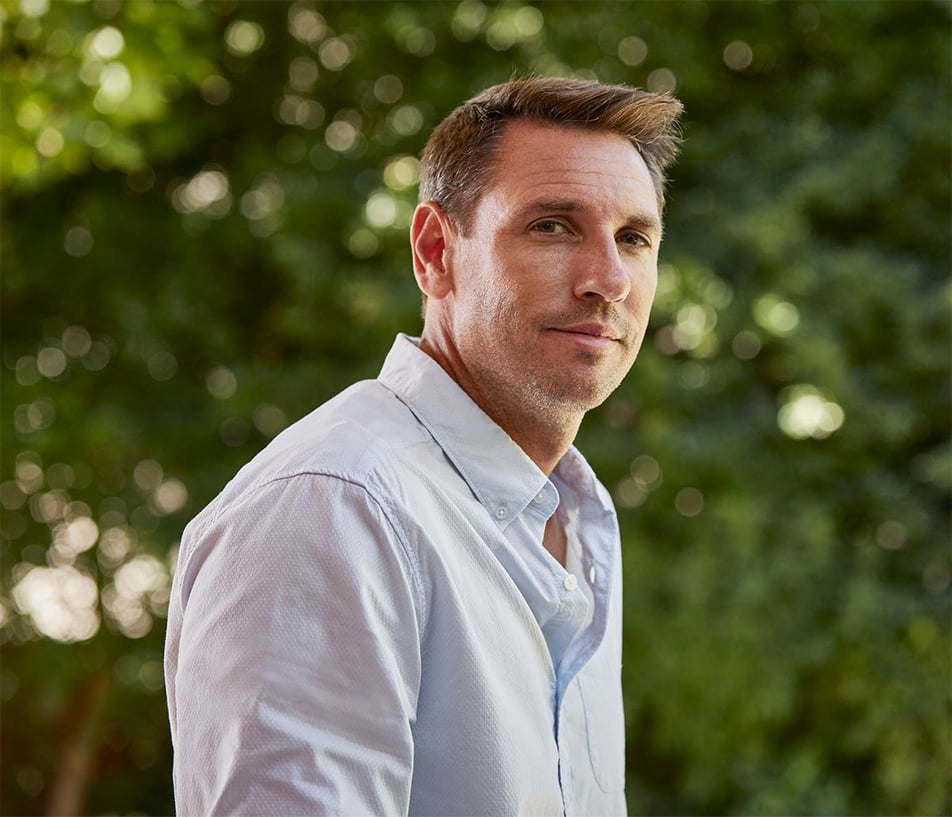

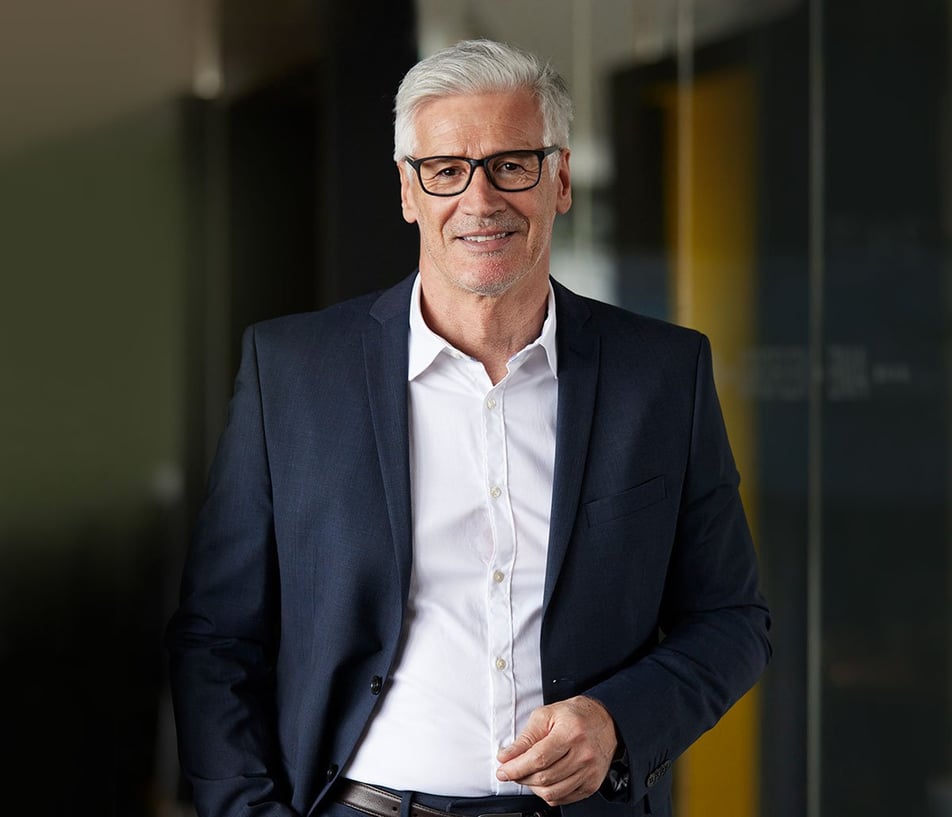

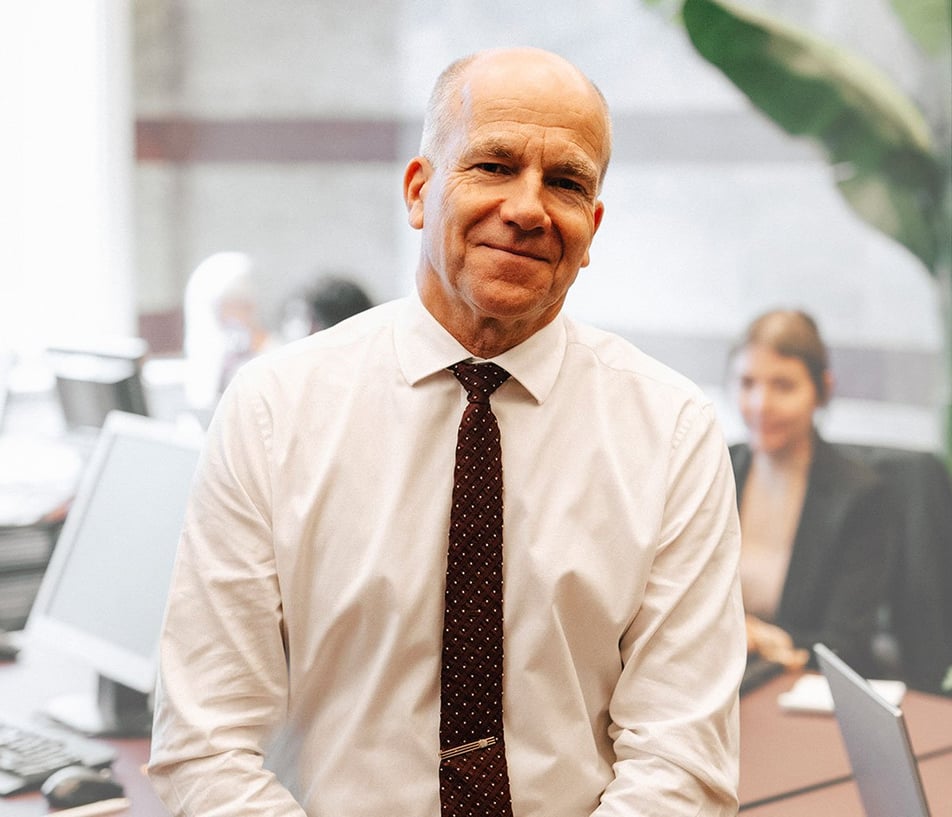
.png?width=400&height=400&name=CT-How_Can_We_Help-22_july_NewGraphic_b(small).png)
.png?width=1386&height=1224&name=2025%20Legal500%20Elite%20Boutique%20Award%20(Badge).png)
.png?width=1386&height=1224&name=ITR%20Finalist%20Practice%20Leader%20of%20Year%20Peter%20Aprile%202024%20(Badge).png)

.png?width=1386&height=1224&name=2025%20Legal500%20Leading%20Firm%20Client%20Satisfaction%20Award%20(Badge).png)
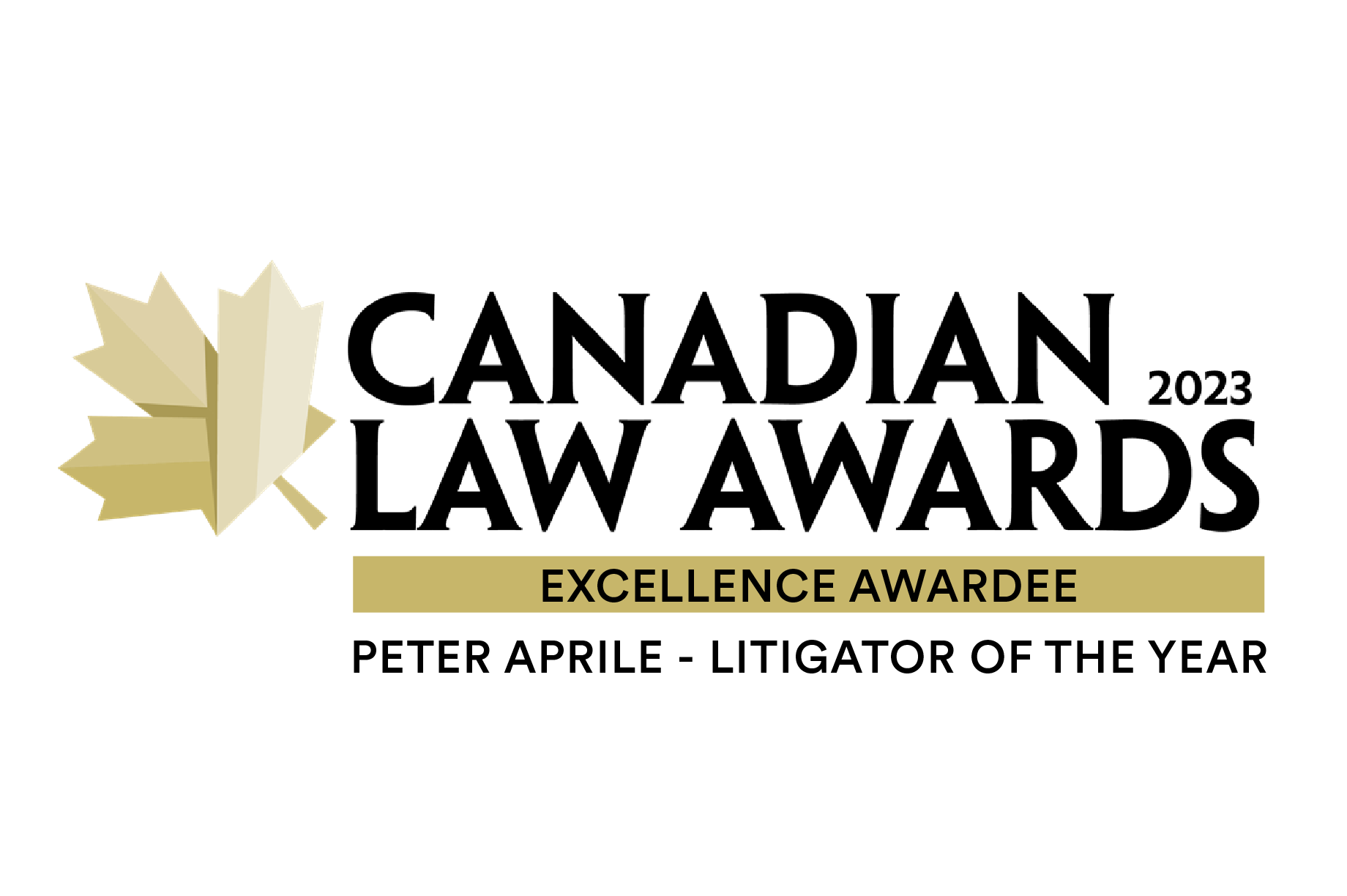
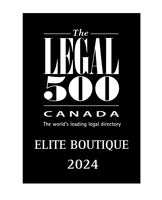
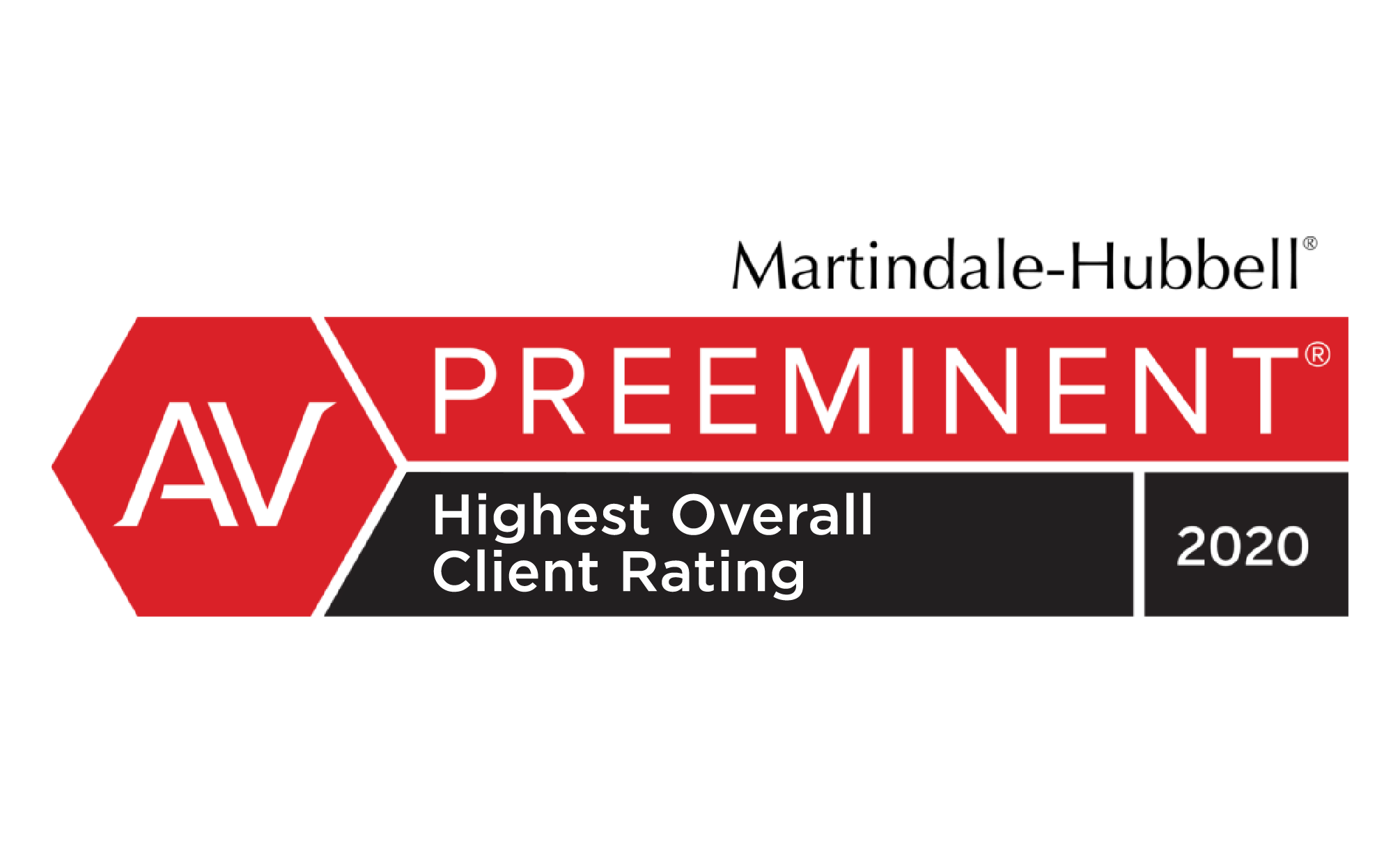
.png?width=1386&height=1224&name=ITR%20Tax%20Innovator%20Finalist%202024%20Award%20(Badge).png)

